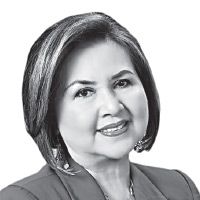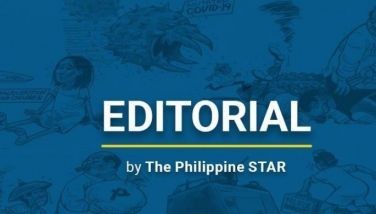The October UNDP and UNESCO MoU consolidates 'One UN'

HANOI, Vietnam — The first week of November saw Vietnam heavily flooded for the first time in 30 years. Hanoi, the 1000-year-old “imperial citadel” dotted with seven lakes, was flooded waist-high for a week.
Tay Ho Hotel by West Lake is the conference site of the “Meeting of National Commissions (NatComs) for UNESCO from ‘Delivering as One’ Pilot Countries and UNDAF Roll-out Countries (2008-2010)” attended by 21 secretaries-general (secs-gen) of Asia, Africa, Latin America and Europe last November 10-13. I joined the secretaries-general of Armenia, Botswana, Egypt, Ghana, Indonesia, Jamaica, Malawi, Namibia, Papua New Guinea, South Africa, Swaziland, and Uzbekistan selected as “roll-out” countries which are already in the process of working closely with their UN Country Teams (UNCT).
The secs-gen of the six pilot countries (out of 8) of Albania, Mozambique, Pakistan, Rwanda, United Rep. of Tanzania, and Vietnam provided lessons on how they are succeeding in “delivering as one”.
The new memorandum of understanding
Last October 24, the United Nations Day, a memorandum of understanding (MoU) on a strategic partnership agreement between the United Nations Development Programme (UNDP) and UNESCO, was signed by Director General Koichiro Matsuura and UNDP Administrator Kemal Dervis. Article III.2 states that “the parties shall collaborate fully with each other and the UNCT, national authorities, and partners concerned in the execution of activities with a view to realizing the expected results described in the UN Development Assistance Framework (UNDAF) and related project documents, annual work plans, joint programmes and/or contribution documentation…
“The Resident Coordinator (RC)/ Resident Representative (RR) may invite a UNESCO NatCom member(s) to attend certain UNCT meetings, especially in countries where UNESCO is a non-resident agency (NRA) when relevant programming issues are being discussed and commission participation is deemed useful.”
A New Era for UN Common Country Programming
As the keynote speaker, Mr. Hans D’Orville, Assistant Director General for Bureau of Strategic Planning (BSP) stated that “the UN reform has emphasized country-level activities and promoted ‘delivering as one’ to enhance effectiveness, efficiency and quality of delivery. He elaborated that “beyond the eight pilots, there will be no more pilots – they were pacesetters for One Plan, One Fund, One Leader, One Team, and One House. Rather, the upcoming Common Country Assessment (CCA)/UNDAF shall be prepared applying the principles and lessons of the pilots. In 2010-2011, some 60 countries will roll-out their new CCA/ UNDAF or revise existing UNDAFs…”
What were the major deficiencies? Insufficient inclusion of UNESCO’s five domains (education, culture, communication sciences and social & human science); tendency to apply a “one size fits all” approach; lack of respect for technical competencies by specialized agencies in their spheres; and Lack of experience with joint programming.
“Why the special focus on NatComs and why wage a campaign to have them integrated into the programming efforts by the UN at the country level?” Mr. D’Orville also pointed out that since the NatComs frequently do not sit with the UN Country Team in joint programs to meet the national priorities, this would be the workshop focus.
National Commission for UNESCO – a unique mechanism
National Commissions for UNESCO are a unique mechanism and modality in the UN System – no other organization knows a similar arrangement. This is best captured by the UNESCO Medium-Term Strategy (MTS) 2008-2013 (document 34 C/4), which states in paragraph 142:
“The network of NatComs for UNESCO has the capacity to facilitate contact and promote interface between Member States and the intellectual and professional communities in each country in order to forge broader alliances, as well as to extend the outreach of UNESCO in each Member State.
“NatComs contribute significantly to the pursuit of the Organization’s objectives and the conceptualization, implementation and delivery of the programs at the regional, sub-regional and national levels. UNESCO continues to strengthen the operational capacities and competencies of NatComs and to use them in program delivery, communication, partnering and mobilization, management of extra-budgetary resources, and enhance the networking and cooperation among them to empower their activities. Efforts will also be made to draw on their expertise in UN common country level programming expertise.”
Obstacles of the involvement of NatComs in UNCT programming
The effective involvement of NatComs in country programming depends on the positions taken by their respective governments (both central and line ministries), the RC and the UNCT, as well as the responsible UNESCO Field Office (FO) Director.
Obstacles on the Government side: Central ministries (planning, finance, foreign affairs, public investment) have the lead role with UNCTs, while excluding the role and contributions of line ministries, which are the mainstay of NatComs. Even if a NatCom were involved, it is usually housed in the Education Ministry and a new challenge arises on how to draw on the expertise from other line ministries covering the entire range of UNESCO’s fields of competencies (culture, the sciences, communication and information).
Another problem is the “human dimension”, where line ministries are involved in UNCT programming exercises, but where conflict between a Minister and the NatCom precludes its involvement.
From the side of the RC and the UNCT, they see no reason why NatComs should be a part of the UNCT when UNESCO is present in all UNCT exercises and many thematic sub-groups. They wonder why there should be a special arrangement for UNESCO. Then they could also bring to table similar national partners, such as UNICEF National Committees or Advisory Bodies. They also question whether NatComs can really provide a direct link to civil society. It is suggested that they should strive to be included in government delegations and negotiating parties, instead. In countries where UNESCO has NRA status, UNCTs are somewhat more open-minded.
From the side of UNESCO representative/ FO director, the problem is how to best use the potential of the NatCom as an effective mobilizer of country-based expert advice and links with civil society.
Making the MoU work
For the new MoU to work, the provisions have to be effectively disseminated among RCs, UNDP, UNCTs and UNES CO HQ and FO staff. More often than not, this will entail a ‘culture’ change among the protagonists. FO directors need to be proactive in prodding RCs to invite NatComs, especially in NRA situations. NatComs must be made aware of these provisions and share them with their lead ministries.
If NatComs were to assume that they would not be observers at UNCTs, but would insist on taking the lead bypassing UNCTs, including UNESCO representatives, this would be the wrong approach. UNDAFs are a product of negotiations between the Government and the UNCT and not by unilateral input/decision from NatComs. Thus, the Government cannot and should not negotiate among themselves.
Involvement of Phil. NatCom in UN country programming activities
As early as 2004, the Philippine NatCom has already been collaborating with the UN RC in terms of harmonizing its work with the rest of the UN agencies in the country. In January this year, Dr. Hubert Gijzen requested me as the Sec-Gen of the Philippine NatCom to represent him in the UNCT meetings as an observer. Since then, I have been actively participating, unless said meetings and conferences are held overseas.
Having been involved in the work of UNESCO since 1986, first as a member of the Executive Board, then a Member-Commissioner of the Philippine NatCom, and now as a Secretary-General, I have represented UNESCO’s interest in the broader UN family. Interventions on best practices and strategic actions are brought to the attention of the UNCT during its meetings, particularly matters relating to transforming the education system in the country.
The NatCom likewise contributed to the drafting of the CCA/UNDAF for the Philippines, which has been rescheduled to mid-2009 bearing in mind that elections shall take place in 2010 and that the present Medium-Term Philippine Development Plan (MTPDP) shall run until that period.
The NatCom highly considers the preparation of the UNESCO Country Programming Document (UCPD) for the Philippines as crucial. UNESCO Jakarta, therefore, pursued the UCPD preparation using FO funds and hired a local consultant, Mr. Ramon Tuazon, president of the Asian Institute of Journalism and Communication (AIJC) – a long-time partner of the NatCom. Mr. Tuazon is presently consulting with the Philippine NatCom Executive Committee, government agencies and other project partners in aligning the ministries’ programs with UNESCO and the nation’s development needs.
Swaziland, South Africa and Philippines’
experiences hold great promise
From UNESCO’s viewpoint, the NatComs can bring a first-hand, country-rooted UNESCO perspective to bear in the context of UNCTs, especially in countries where UNESCO is non-resident. Initial experiences in Swaziland, South Africa and the Philippines hold great promise.
(For more information or reaction, please e-mail at [email protected] or [email protected])
- Latest
- Trending




























